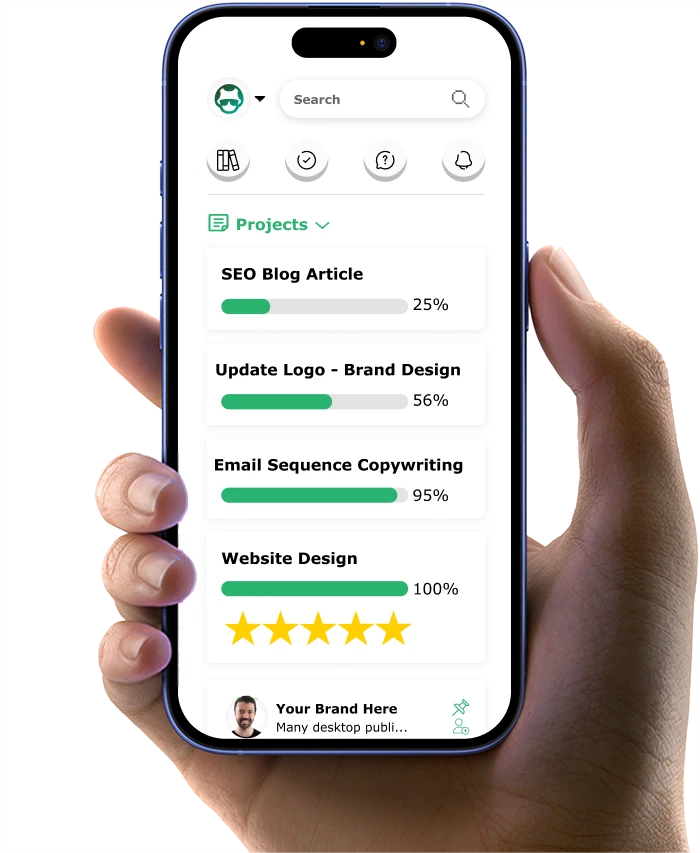Packard’s Law – Your Company Is Much More Likely To Die of…
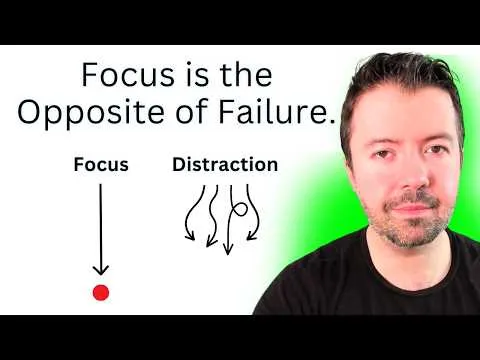
As entrepreneurs and business owners, it’s easy for us to get excited about new opportunities—sometimes too easy… and kind of typical actually.
Back in 2020, I found myself juggling multiple projects, partnerships, and ideas. I was convinced that each new opportunity could be the next big thing for my company.
But it wasn’t until I doubled down on the ONE core part of our business that was already working—focusing like a laser all my energy and my team’s efforts—that we experienced explosive growth. We grew 936%, scaling from $10K to over $100K in monthly recurring revenue in just 8 months (and then maintained it to gross $1.2 MM for the year for the 1st time).
In today’s video / article, I’m going to share the real-world lessons and proven strategies that will help you achieve similar results—and this isn’t just from my experience, but I’m drawing on wisdom from founders of iconic companies, like HP which today has a market cap exceeding $22 billion.
What you’ll get:
- You’ll learn Packard’s Law, from the Founder of Hewlett Packard
- Unpack why _____ is the ultimate competitive advantage.
- Explore the hidden risk in every new opportunity (“Once in a lifetime opportunities around about twice per year”…), and…
- How the art of saying “no” relates to business survival rates
Plus, I’ll give you actionable tips and inspiring examples from business icons like Steve Jobs, Bruce Lee, and Netflix. Ready to break through the noise and build unstoppable momentum?
Let’s do this…
Want to get all your marketing and funnel work done—without the headaches of hiring a team? Download our free guide: 33 Marketing Projects You Can Delegate to Growbo and discover how to save 100+ hours a month, grow faster, and scale without the overhead.
One day, one of the partners at the firm, who had previously been an entrepreneur himself, shared a piece of advice that I’ve never forgotten. It relates to what’s known as Packard’s Law, named after David Packard, the co-founder of HP.
As of today, HP is valued at around $24 billion in market cap. Both the quote from Packard and what this venture capital partner told me explain in simple terms everything you need to know about the difference between companies that flounder and those that consistently take off, grow, and generate profits.
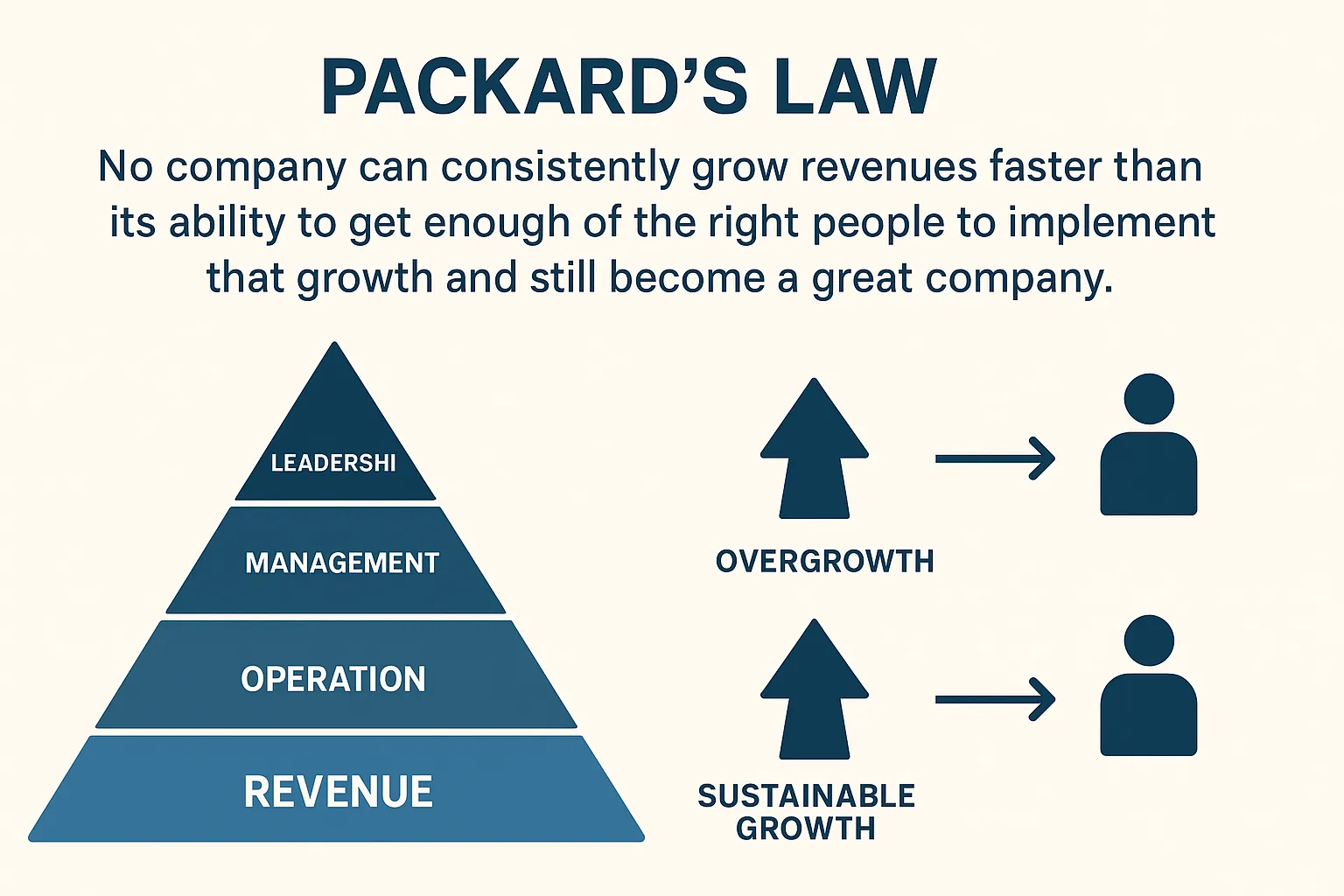
This is a pattern I’ve seen many times in my own experience growing Growbo.com. In 2021, we hit $1.22 million in revenue and went on to become a multi-million dollar company.
This daily video series that I’m doing right here keeps me accountable and on the path toward my new big, hairy, audacious goal: $1 million in profit per month. It’s a high bar—a big leap for us to make, because we’re talking about not just revenue, but profit. In the process, my hope is to give you a real-world playbook of lessons, tactics, and strategies you can apply to accelerate your own success.
The Weirdness of Entrepreneurs
What the venture capital partner said to me was, "Matt, entrepreneurs are weird people. I mean, you kind of have to be weird to go and start a business." I asked why. He replied, "Well, you kind of have to be a little delusional—or at least delusional enough to believe that something different from the norm, which is failure, can happen."
Failure is the norm in business and, honestly, in life for many things. You have to believe that something different from the norm—which is failure—can and will happen. Entrepreneurs may or may not be optimists, but we do tend to see a silver lining when it comes to new ideas. We see the possibility of a brighter future. "Oh wow, that could work," or "What if we invested in that?" We think, "I think we could do that. I think we can make that happen."
The U.S. Bureau of Labor Statistics illustrates just how steep the odds really are: nearly 80% of businesses survive their first year, but by the 10-year mark, only about 35% remain. This steady decline shows why starting a business often looks irrational from the outside—most ventures statistically fail. Yet entrepreneurs press forward, driven by the belief that their idea will be the exception.
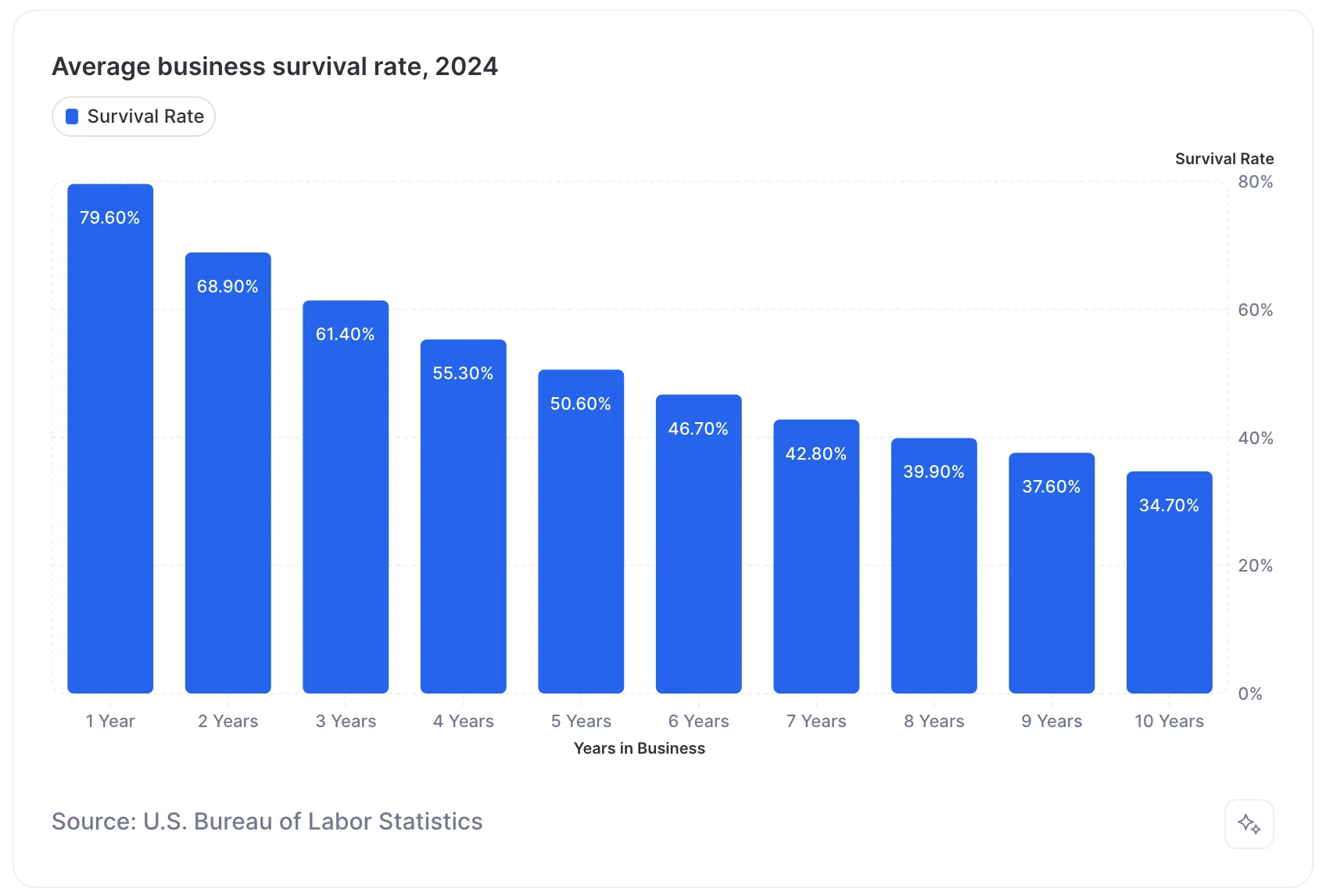
We tend to think this way whenever we hear something new—when someone pitches us a new opportunity, a new case study, or a new tactic. It might be a new marketing campaign, a new client acquisition channel, or—much more dangerously—an idea for a new business.
Packard’s Law: The Danger of Too Much Opportunity
This is where Packard’s Law comes in. David Packard, co-founder of Hewlett-Packard, said, "A company is more likely to die of indigestion from too much opportunity than starvation from too little." Let that sink in. A company is more likely to die from having too many opportunities than from having too few.
As shown in the graph below, consistent startups that stay focused see their valuations soar dramatically during the scaling stage, while inconsistent startups—those that scatter their efforts—plateau and even decline. The data highlights how discipline and focus, not chasing every opportunity, drive long-term growth.
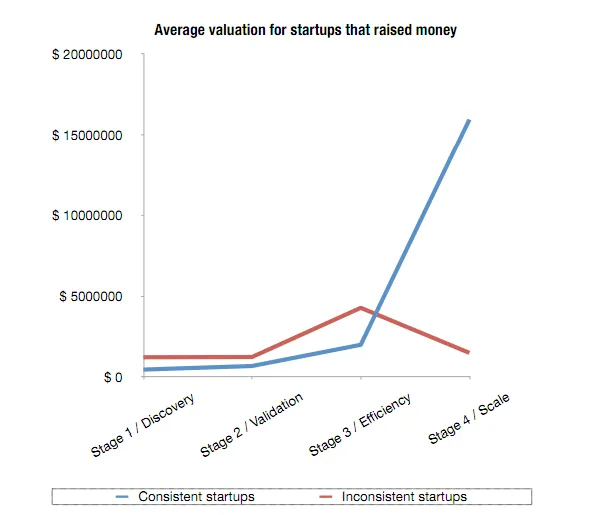
This law is as constant and predictable as gravity. It states that companies often fail not because they lack opportunity, but because business leaders or entrepreneurs decide the company should pursue too many opportunities at once. This splits focus, dilutes energy, and ultimately leaves the company with no real focus.
Resources and time get divided, and what might be making money—what might actually be succeeding—doesn’t get sufficient attention to develop and become the number one revenue and profit center for the business.
The result? Poor execution, resource depletion, and ultimately, failure.
The Double-Edged Sword of Optimism
Combining this with what the venture capitalist told me about entrepreneurs being "delusionally optimistic," you can see why I say it's ironic: the grass-is-greener mentality that gets us to start a business in the first place is also the mindset most likely to kill our business.
That mentality drives us to seek new and novel stimulation, always thinking there's some secret out there. It was the initial spark that got us to start our businesses and generate some initial sales and momentum.
We want to believe in the power of ideas. It's lionized and mythologized in the media: the entrepreneur has that "aha" moment, like Isaac Newton with the apple or the invention of the light bulb.
But what gets ignored is that those moments are just 1% of the process. The other 99% is the grind—the years in between, bringing the idea to market, selling it, marketing it, perfecting the product or service and the brand.
Other founders and business owners often call this "shiny object syndrome." We get FOMO or just believe in how big an idea can possibly be.
The figure below illustrates this perfectly: the green “normal curve” shows steady upward progress over time when focus is maintained, while the red “shiny object syndrome” path shows repeated resets—progress lost every time the entrepreneur jumps to the next big idea. The result is slower growth and a cycle of starting over instead of compounding success.
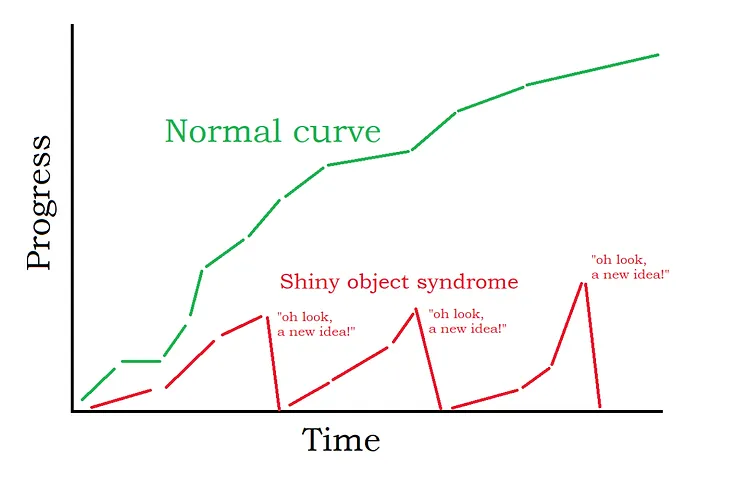
We think we can do it all and don't realize that by saying yes to new things, we're saying no to our main business—the one that's actually working and making money.
The Power of Focus
What the grass-is-greener mindset fails to realize is that, yes, the grass might be greener on the other side, but it’s fertilized with three feet of manure. Steve Jobs said, "People think focus means saying yes to the thing you've got to focus on, but that's not what it means at all. It means saying no to the hundred other good ideas there are."
For Jobs, focus led to simplicity and clarity, which in turn allowed for greater impact and the ability to move mountains. He believed in distilling an idea or product down to its simplest, most essential form. When you have that, you can move mountains—but only if you’re focused on that one idea.
Your resources, energy, and time must all go toward that one thing. You have to say no to everything else, even if it’s a good idea. That’s how you can say yes to the one great idea.
Bruce Lee, the famous actor, martial artist, and philosopher, said, "The successful warrior is the average man, but with laser-like focus." He also said, "I fear not the man who has practiced 10,000 kicks once, but I fear the man who has practiced one kick 10,000 times."
Reed Hastings, co-founder and CEO of Netflix, emphasized how a core tenet of Netflix’s culture, especially in the early years, was focusing on "doing one thing well rather than two products in a mediocre way." Netflix is a perfect example: a company with one core product, one core competency. This laser-like focus has allowed for deep integration into our lives—think of all the TVs in the last decade with Netflix built right in.
In Bruce Lee’s terms, Netflix is the dangerously effective opponent who has practiced one kick 10,000 times and mastered it.
Focus in Action: My Entrepreneurial Journey
If indigestion from too much opportunity is the most likely way for a business to destroy itself, then focus is the most likely way for a business to succeed. Focus is achieved by doing fewer things and not getting away from what’s making the company money and what the company does best.
In my own experience as an entrepreneur and marketer with 19 years in the field, every time my company was doing great—making profits, growing, and scaling rapidly—it was because I, along with our amazing team, was focused on the main core business and revenue channel. When we said no to other ideas, that’s when we did our best.
In the summer of 2020 through the first quarter of 2021, we grew 936% in just eight months. We went from $10K in monthly recurring revenue to over $100K, and averaged $100K in revenue for a total of $1.2 million for the year. That was the power of focus.
Other years, when the company wasn’t growing and was burning cash, it was because I wasn’t focused, or the team wasn’t focused. We divided our time and energy among different projects and opportunities because we didn’t want to say no. I thought, "Maybe this partnership will work," or "This new service or product will be the answer."
Don’t get me wrong—there are times in a business’s life, especially early on, when you might need to pivot and try a new offer, product, or market. But once you see something is working and aligned with the company you want to build, it’s your responsibility to double down on it—to focus and stop chasing every new idea.
Practical Advice: “Hack Away at the Unessential.”
As Bruce Lee also said, "It is not the daily increase, but the daily decrease. Hack away at the unessential." You may think you’re focused now, but how much more effective could you be if you chose to say no—no to certain tasks or obligations in your work or even personal life?
Think about it. Meditate on it. But most importantly, take action.
Try it out.
Because most people scrolling through YouTube or social media will never take action. But you have the opportunity to grow your business faster than anyone else with this simple strategy: say no.
If you found this valuable, please like, comment, and subscribe to the channel. Consider sharing this article with someone who could benefit from it. And if you’re looking to scale your business faster, one of the most effective ways is to have a team of marketing specialists you can delegate your tasks and projects to. That’s what Growbo gives you—a complete marketing fulfillment team with 13 skill sets, including copy, content, web design, graphic design, ads management, video, and more.
Whether you’re an agency, SaaS business, or professional service, Growbo will help you accelerate your marketing success without the headaches of hiring. You pay a flat monthly fee, no long-term contracts, and it’s easy, fast, and affordable. Check it out at growbo.com if you’d like to learn more.
Keep Growing. Stay focused,
Image Credits:
1. https://www.commerceinstitute.com/business-failure-rate/
2. https://www.geekwire.com/2011/number-reason-startups-fail-premature-scaling/
3. https://whatfix.com/blog/shiny-object-syndrome/
4. https://www.singlegrain.com/blog/ms/focusing-on-one-thing-at-a-time/
5. https://theshortbear.substack.com/p/essentialism-the-disciplined-pursuit



